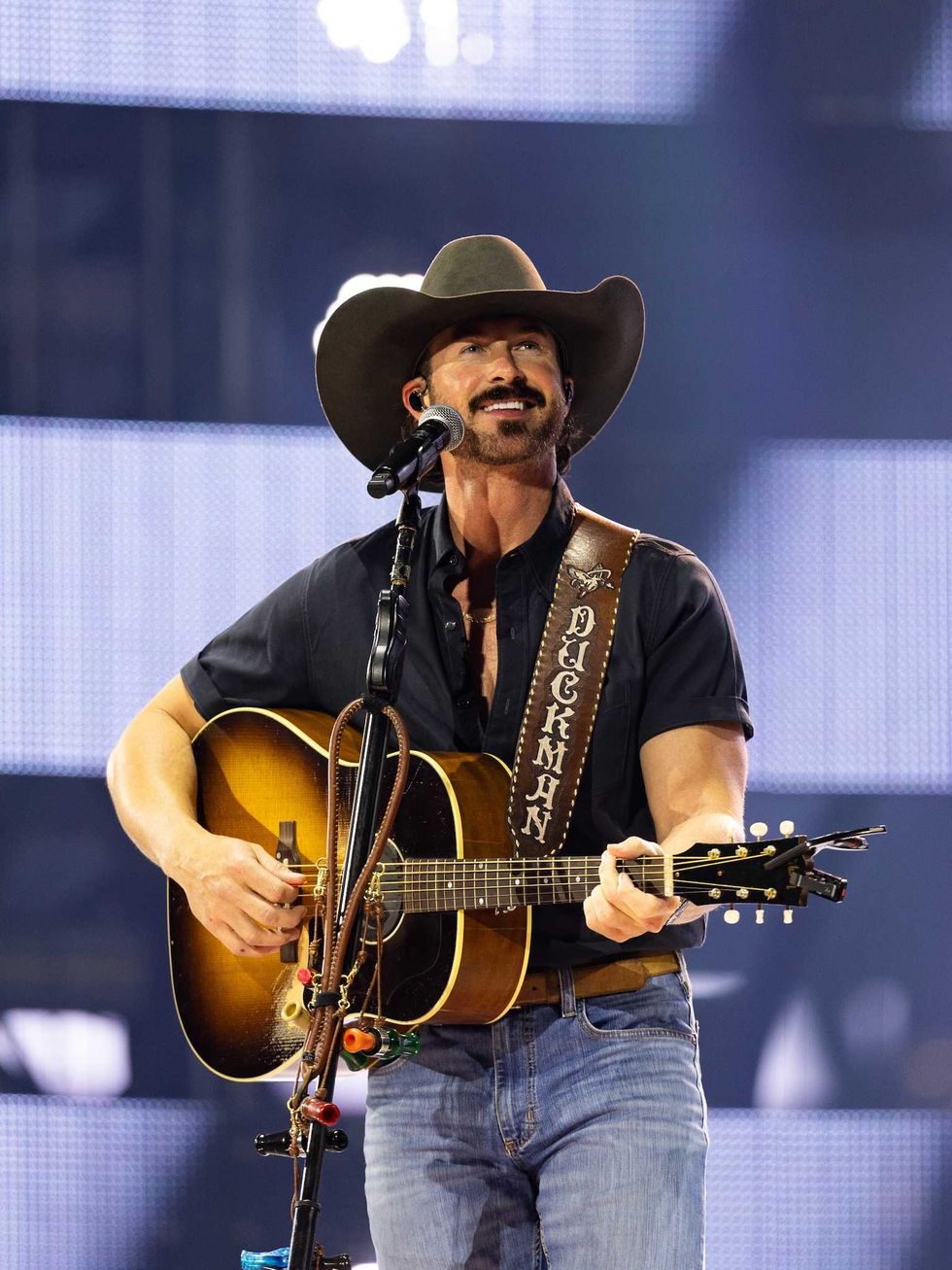Looking like a member of the Dutton clan that grew tired of the ranching business and got really into Toby Keith and duck hunting, Riley Green opened the 2026 edition of the Houston Livestock Show and Rodeo on Monday, March 2 in front of 59,250 attendees.
The Alabama native and former college football quarterback — because of course he was — strikes a starched jeans balance between the tender, woo-pitchin’ of guys like Merle Haggard and George Jones and the deep, blinding romance of neo-traditionalists Tracy Lawrence and fellow 2026 RodeoHouston performer Tim McGraw, with a cowboy hat resting over his epic flow.
Speaking of the Taylor Sheridan Television Universe (the TSTU), Green will soon be seen on the Sheridan-produced Yellowstone spin-off series Marshals, which premiered on CBS this past weekend, as a troubled former Navy SEAL.
The ACM New Male Artist of the Year for 2020, the 37-year-old didn’t get around to playing RodeoHouston until just last year. When Green isn’t in a recording studio, performing onstage, starting a duck hunting brand, or conspicuously vacationing with his shirt off in a tropical climate near other young country stars, he retreats to his farm or deep into a far-flung swamp on a hunting excursion. That being said, if I ever start a country punk band, I’m going to call it Riley Green’s Forearms, because they seem to attract audiences as much as his music.
Green’s show kicked off just after 9:20 pm with the man himself blowing into a duck call and launching into “Different ‘Round Here,” luckily out of earshot of any ducklings NRG Center potentially bedding down for the night.
“Hell Of A Way To Go” came with a mid-song disclaimer that it was his grandfather who was a fan of Alabama football, lest any alumni in the crowd get things twisted, before switching it to up Texas.
Green honored his mentor, Jamey Johnson, with a widescreen cover of the woolly singer-songwriter’s timeless “In Color”. Green’s earliest work was heavily influenced by Johnson, and the pair have become lasting friends.
He and fellow country star Ella Langley have become inexorably linked since their 2024 chart-topping duet "You Look Like You Love Me” like a nu-country Conway and Loretta. Sadly, there was no convertible riding out onto the rodeo dirt with Langley riding shotgun to jump into the duet, but the female audience members filled in admirably in her stead. "There Was This Girl," his gold-certified debut single, followed it up.
The late Toby Keith got some shine with a medley of his hits, including Green taking a turn at Keith’s 2002 anthem "Courtesy of the Red, White and Blue," which has earned something of a resurgence due to the USA hockey team singing it at the Winter Olympics.
Green slowed things down and took a break on a stool for “Jesus Saves” and “Don’t Mind If I Do,” showing off his solo acoustic chops.
The smoldering bedroom romp “Worst Way” got the biggest squeals of the night, with tall boys hoisted over cowboy hats, while his 2019 hit, "I Wish Grandpas Never Died" — the triple-platinum tribute to his late grandfathers, Lendon Bonds and Buford Green — brought the waterworks and a sea of smartphone flashlights through the stadium.
Green made his way out of the building with his band’s take on Alabama’s “Dixieland Delight,” jumping into a Ford pickup and into a few thousand fans’ dreams.
Setlist
Different ‘Round Here
Change My Mind
Hell of a Way To Go
In Color (Jamey Johnson cover)
You Look Like You Love Me
There Was This Girl
Toby Keith Tribute Set
- I Should’ve Been A Cowboy
- Courtesy of the Red, White & Blue
Jesus Saves
Don’t Mind If I Do
Worst Way
I Wish Grandpas Never Died
Bury Me in Dixie / Dixieland Delight
 Kristen Stewart
Kristen Stewart Kristen Stewart
Kristen Stewart


